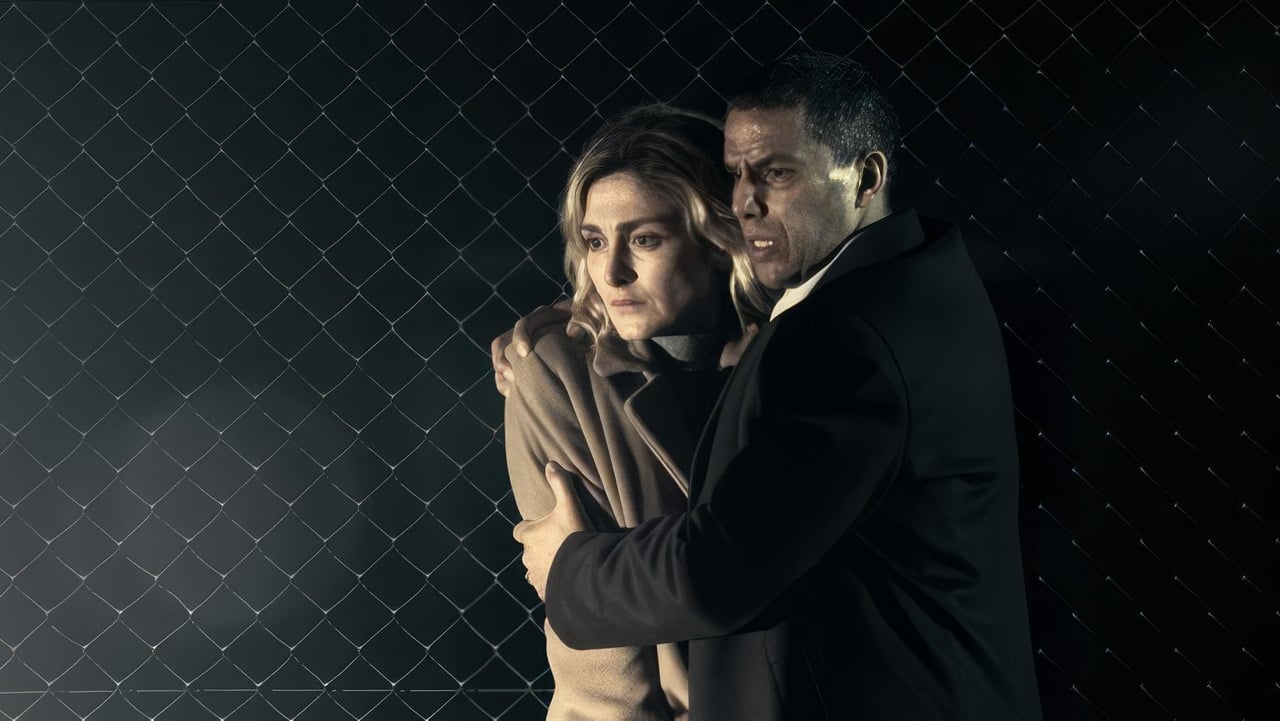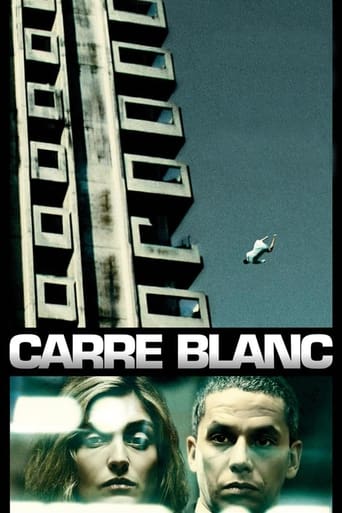

This film blew me away when I saw it at the UK premier. Didn't know what to expect before going into the cinema except it was set in a future dystopian France so half expected a low budget sci-fi but this is not sci-fi in the cheap star trek mold.The plot revolves around a society where people are forced to take part in random acts of cruelty against one another to get ahead. Many of these are ultra-violent versions of corporate training or assessment processes that might exist in interviews in the real world but the film expertly leaves much more to the imagination than it shows.A terrible sense of fear pervades every character in this film as they each barely trust each other. The main character is skillfully played by Sami Bouajila so that despite his evident cruelty he still comes across as sympathetic.These aspects alone make the concept interesting but countless other themes are hinted at leaving plenty of space for thought. Announcements on a tannoy system celebrate the births of new children. Is the human population unable or unwilling to reproduce? A counter appears on screen, sometimes accompanied by a voice over reading numbers that seem to be falling from around 800 million to around 600 million at the end of the film. Is this the human population in terminal decline? We see body bags being fed into a factory with a meat grinder and strong hints that people survive on human flesh. Is this out of necessity because other food supplies have dwindled or is it because the harsh, uncaring nature of the society mean that people are just indifferent to cannibalism? Throughout the film is shot expertly, thick, dark frames make it feel like the characters are swimming through the world. The music likewise is minimal but perfectly timed.In short go and see it.
... View MoreJean-Baptiste Léonetti's debut feature, "Carré Blanc" (which translates into "White Square"), sure as Hell wasn't what I expected, that's for sure! I'll start off by saying that it is a film filled with a whole lot of "what-the-f*ck" moments. It is both bizarrely cryptic and unexpectedly ultra-violent.If I had to describe it in one run-on sentence, it would be: Take the concepts of the Milgram and Stanford Prison Experiments and base an absolutely resourceless society- where everyone is in submission to a sole corporate force (whose Brand logo is a series of white squares)- around them; combine this with a creepishly fetishistic obsession with croquet (don't miss it's symbolism) and an insatiable desire for meat...and you'll have something like Carré Blanc.I went in knowing that the film takes place in a dystopian world that amalgamates Kafka-esque and Orwellian features. One in which our protagonist has been co-opted into it's only corporation- responsible for the dictation of all aspects of society. Despite this, I had not braced myself for what I was about to experience.In the film's opening, and throughout it's transitions, we are shown a number that starts in the 800-something millions, but which begins to decline rapidly as the film progresses.We are told a tale, while images of Polar Bears- who have resorted to cannibalism because of environmental conditions- flash across the screen. There is one particularly shocking image that shows one Polar Bear holding the severed head of another in it's jaws with the intestines hanging off it. This image (and tale) being a metaphor for the film, in it's entirety.We watch as a meat-wagon goes around indiscriminately collecting the bodies of the dead; placing them into body bags marked with the Company's insignia. We follow the truck filled with body bags into the Company's processing plant and subsequently watch as various meat products are being packaged and shipped. While never discreetly said, it is clear we are dealing with a post-resource society run by a company that has taken upon itself to process human meat for human consumption.If you pay attention to the details, though, you might question whether this is a necessary practise, or one forcibly applied. Either way, you now realize that declining number you have been watching is actually the global population count.We meet our main character- Phillipe- after his mother runs out of the processing plant in disgust; when she can no longer take it. She heads home and tells her son the tale we are told in the film's opening, shortly before she hurls herself off their balcony from a couple dozen stories up. Leaping to death right before the eyes of her only son.Her body is grabbed and taken for processing, while Phillipe is taken to the Company where he will be raised alongside other children whose parents have recently been harvested.This is our first look at how this slightly Scientology-like Company works from the inside. They operate a violent, and psychologically manipulative regime of utter indoctrination that mentally breaks people down into one of two types of individuals: a psychopathic and predatory monster or apathetic, submissive, and psychologically weak prey; the latter being most likely to end up dead and processed at the hands of the former. No one dares dissent against the system for fear of repercussions. But even then, employees are picked at random from the Company and put through a series of bizarre trials that are both brutal and hilarious in nature- of which, if they fail, will result in a rather untimely and violent death.Because of his early experiences, Phillipe has been hardened and manages to easily move up the ladder to the top tier of the Company hierarchy. The film fast forwards in time and we find ourselves looking at a middle-aged Phillipe (Sami Bouajila) who now runs these bizarre trials that are designed to put the participant into a state of mind from which they will not succeed; though there are, apparently, solutions to these ridiculous puzzles. He is perfectly content carrying out his duty for the Company, which, by this point, has drastically reduced the world's population to somewhere in the 600 million range.To ensure "sustainability" the Company has adopted the Orwellian tactic of using an omnipresent PA & CCTV system that disseminates Company propaganda, and even, at times, addresses the characters' specific actions. This propaganda- which is, essentially, the Company's sustainability policy as it adapts to an ever bleaker situation- promotes playing croquet (don't miss it's symbolism) as a way to keep the family together; and- if cannibalism isn't morally corrupt enough for you- the conception of children with girls of an increasingly young age. I believe 12 was the last recommended age to get girls pregnant without parental permission. Yep, you heard right...a world driven by a bunch of cannibalistic libertarian pedos. A prophetic view of our future perhaps? The world that Léonetti has fashioned in this dark and twisted film is truly insane. The environment is very drab, with mostly pale dark colours and off whites; non-descript but interestingly designed apartment buildings; and bland office interiors. The scenery reminded me of the world found in the equally bizarre Norwegian film called "The Bothersome Man" and also has elements reminiscent of Orson Welles' dystopian masterpiece "The Trial". The subject matter is bleak and grotesque, but the film is delightfully entertaining as it is full of moments that are both shocking and humorous. A truly imaginative film with the perfect atmosphere, and quite well made, if I might add.I'll conclude by noting that Léonetti does leave a thread of hope interwoven throughout the film- a hope derived from the Love between he and his wife Marie (Julie Gayet).A scathing critique of the path down which modern day society is heading and an all-around brilliant dark comedy. Definitely Recommended. 8.5 out of 10.
... View More